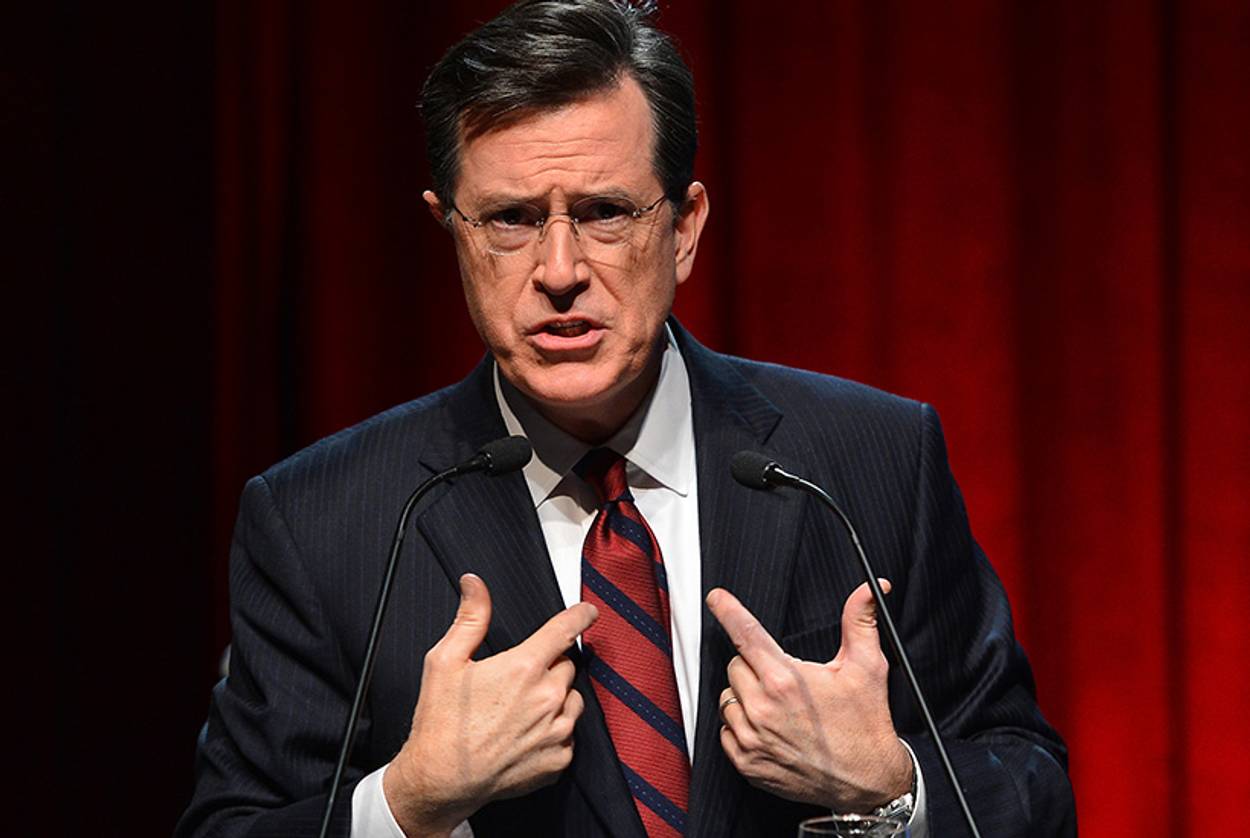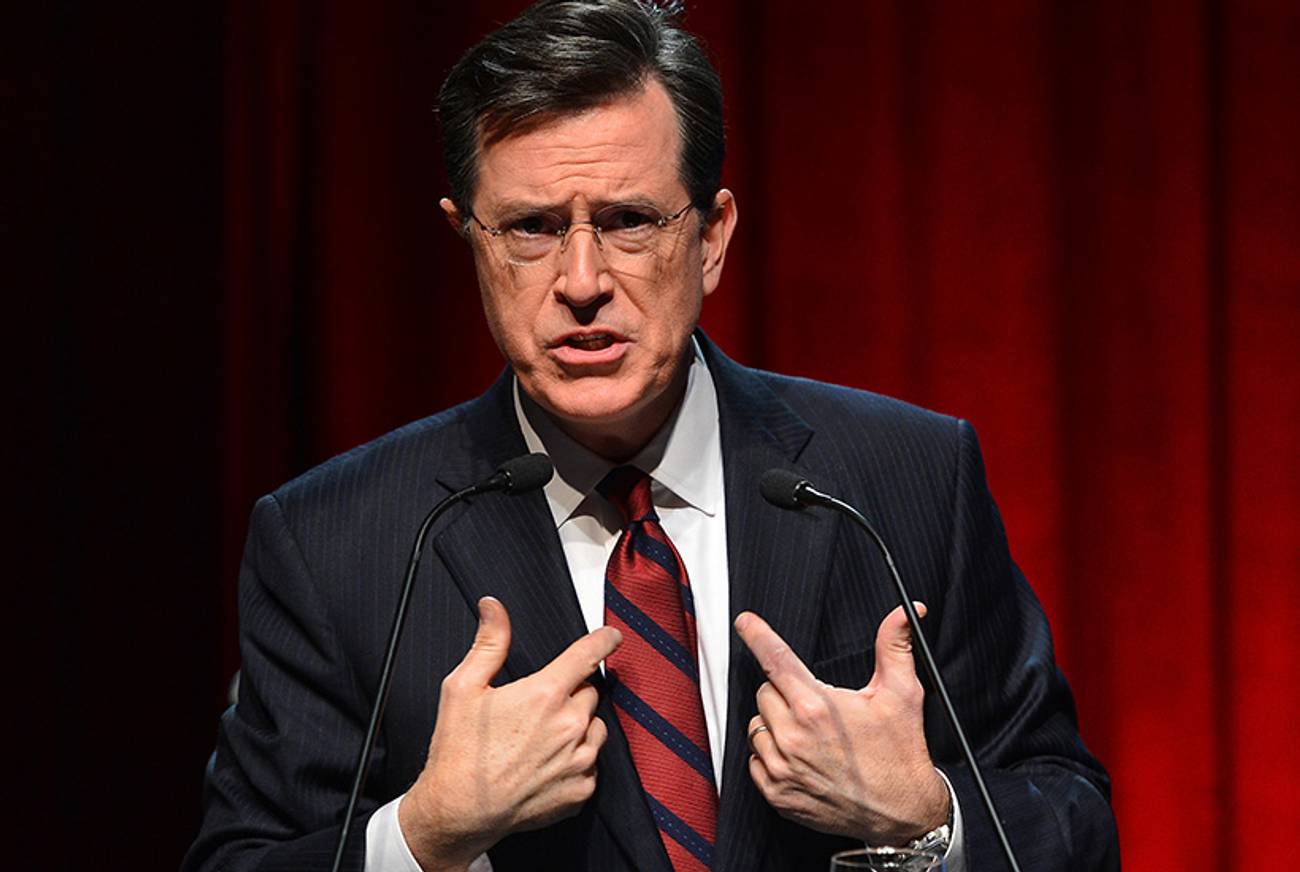All Out of Ideas: The Dumbing Down of American Discourse
The problem with our politics isn’t the collapse of left or right; it’s our inability to think rigorously about the challenges we face




God help the American left: In rapid succession, recent weeks have delivered flare after flare from an ideological camp ablaze with some sort of illiberal fire. In Mountain View, Calif., Brandon Eich, the CEO of the Mozilla Corporation and the author of JavaScript, the computer language that is web browsers’ native tongue, resigned after the dating site OKCupid launched a campaign to protest Eich’s personal support of Proposition 8, the 2008 California constitutional amendment to ban same-sex marriage. A luminary technologist, Eich stepped down, even though his views weren’t significantly different from those of, say, Hillary Clinton, who, in 2000, stated that she believed marriage “has always been between a man and a woman.” A scenic drive down the coast, in Santa Barbara, a professor was charged with one count each of vandalism, theft, and battery after shoving a teenaged pro-life protester and snatching a sign from her hands. And in the wilderness of social media, Stephen Colbert was pilloried by a campaign to cancel his show after an activist named Suey Park took offense to an out-of-context joke tweeted by one of Colbert’s staffers; when asked by a journalist for the left-leaning website Salon if the clearly satirical quip deserved calumny, Park responded that she had no interest in putting “the white man’s joke” into context and that she wanted revolution, not reform. Michelle Goldberg, writing for The Nation, did what she usually does and sought to introduce a measure of sanity into the debate; politics, she wrote, contract when political correctness runs amok and illiberal passions trump reasoned debate. Not surprisingly, Goldberg was soon assailed and accused of “white liberal sanctimony” that threatened “people of color into capitulation.”
It’s tempting to read this pathetic array of prejudices as a scan of a moribund political movement about to flatline, and to an extent it is. But the real catastrophe unfurling before our eyes isn’t the decline of the left—crests of fanaticism and intolerance are just as prevalent and just as hazardous on the right—but the dearth, everywhere you look, of worthwhile ideas.
Two generations ago, such intellectual aridity would have hardly been imaginable. As corrosive as politics got, as murderous the splinters of zealots left and right, we had ideas as our buttress and a phalanx of men and women who were, to borrow the name of a fine documentary film about some of the more celebrated of the bunch, arguing the world as our guards. No matter the nature of our national entanglements, from wars abroad to riots at home, anyone entering the political scuffle could have done so with the proper intellectual armament.
No more. The shrieks and the howls are all we’ve got now. They pass for intellectual debate, addressed in academic departments and dissected in journals that once had greater concerns in mind. The isms that once struggled for primacy had given way to topical outrages: about income inequality, about the gold standard, about drones, about Benghazi, about Israel, about Stephen Colbert. And that’s the real danger: not that this political camp or that is growing intolerant, but that both are getting incorrigibly dumb.
Rather than try to cleave to the old divisions of left and right, then, what we need to alleviate us from this great intellectual depression are massive public works of the mind, the sort of strenuous mental undertakings at which American thinkers, so many of them Jewish, used to excel. These are likely to take many unexpected forms, but some outlines are already visible and imminently clear. To nourish us, the new crop of ideas we so desperately need must be rooted in three principles.
First, it must not sanctify sanctions. This is not to categorically negate the use of pressure—boycotts and divestments are often terrific and efficient tools of civic engagement. But it is to reject the mindset, so common in our parts, that political victory means having prevented those with whom we strongly disagree from speaking their minds. The recent spates of stupidity are instructive here: Think of what a richer debate we might’ve had had the choir that silenced Eich invited him to debate instead, or had Park appeared on Colbert’s show to discuss her ideas and explain her offense rather than call for the show to be canceled.
Second, it must strive to expand our understanding of the common traits we share and that make us members of the same beautifully flawed species. It is foolish to assume that the distinctions of gender, sexual preference, race, socioeconomic class, and physical ability don’t matter; but it is a far greater offense to our shared project to proceed as if nothing else does. To examine every occurrence through an ever-narrowing prism is to see less and less of the world at each turn.
Finally, we must insist on consistency. For further proof that our outraged ideologues are a comically incoherent bunch, just watch the most heinous critics of the Israeli occupation strangely sidle up to the Kremlin-controlled television network RT as Russia orchestrates its own forceful seizure of land in Crimea. Principles practiced privately and intermittently are not principles at all; they’re biases, and they are, to say the least, unhelpful. As too many revilers of Israel have yet to figure out, double standards are an absolute intellectual non-starter.
And so, let’s stop wasting so much time fuming over the nattering of nabobs on all sides of the political spectrum and instead recommit ourselves to what has, not too long ago, been both our cultural heritage and the engine of our prosperity: namely the belief that ideas matter, and the ability to discuss them with passion, with rigor, and with pride.
***
Like this article? Sign up for our Daily Digest to get Tablet Magazine’s new content in your inbox each morning.
Liel Leibovitz is a senior writer for Tablet Magazine and a host of the Unorthodox podcast.
Liel Leibovitz is editor-at-large for Tablet Magazine and a host of its weekly culture podcast Unorthodox and daily Talmud podcast Take One. He is the editor of Zionism: The Tablet Guide.